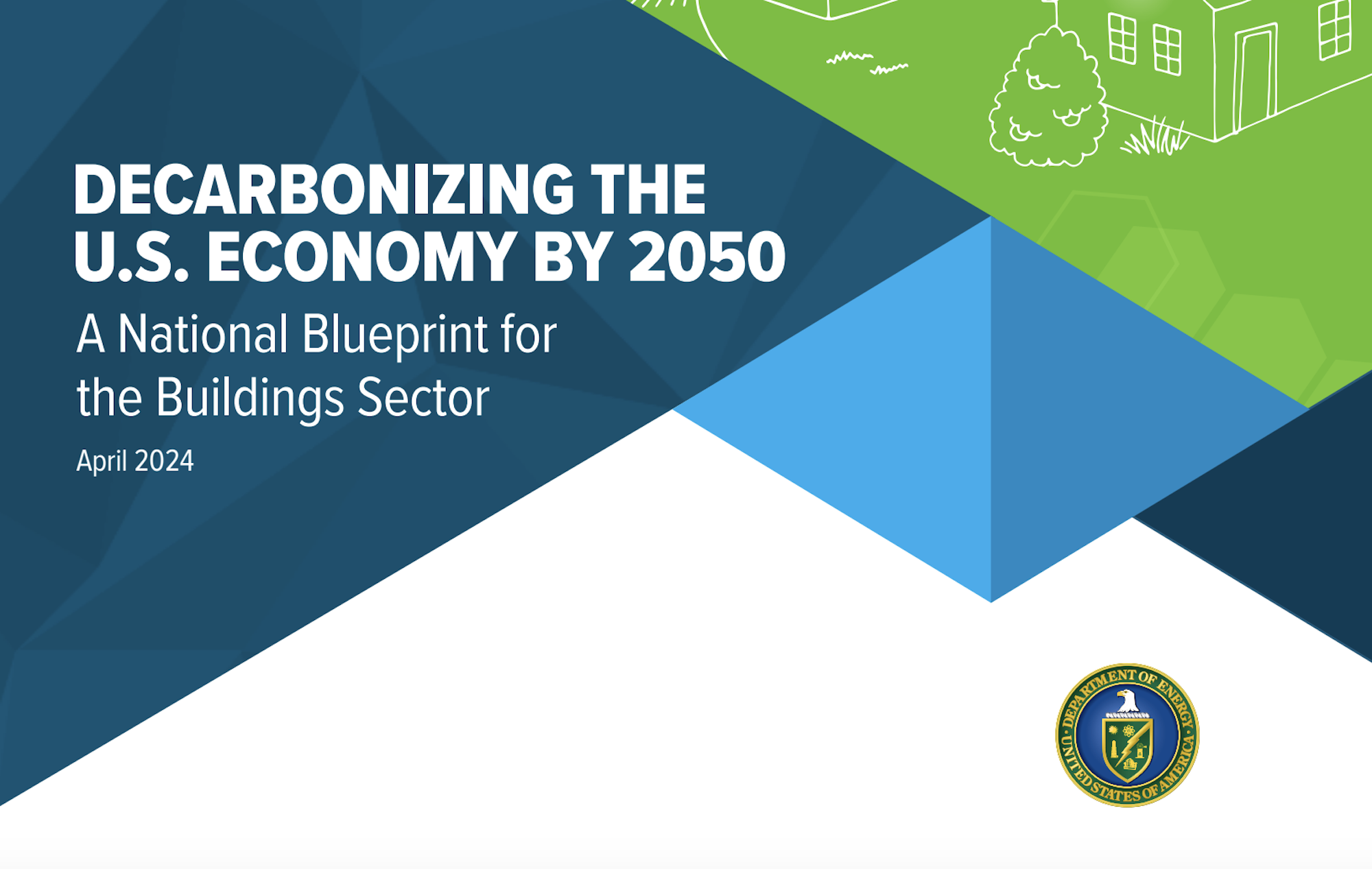The Biden Administration recently released “Decarbonizing the U.S. Economy by 2050: A National Blueprint for the Buildings Sector,” a comprehensive plan to reduce greenhouse-gas (GHG) emissions from buildings by 65% by 2035 and 90% by 2050.
The Blueprint is the first sector-wide strategy for building decarbonization developed by the federal government. It outlines ways to reduce energy in homes, schools, and workplaces.
To reach the emissions reduction targets for the buildings sector, the Blueprint sets four strategic objectives:
• Increasing building energy efficiency
• Accelerating onsite emissions reductions
• Transforming the interactions between buildings and the electricity grid
• Minimizing the emissions from producing, transporting, installing, and disposing of building materials
Each objective has specific performance targets and market, policy, and technology milestones to reach by 2035 and 2050. Meeting these targets will require accelerated deployment of a wide range of decarbonization and energy efficiency technologies. The Blueprint outlines coordinated federal actions that can increase the speed and scale of solutions deployments. Those actions include funding research and development to develop lower-cost technologies, expanding markets for low-carbon technologies, providing direct funding and financing, and supporting the development and implementation of emissions-reducing building codes and appliance standards.
The Department of Energy, a key player in the administration’s decarbonization drive, is focused on building innovations in three pivotal areas: building upgrades, efficient electrification, and smart controls.
Related Stories
| Aug 29, 2022
Montana becomes first U.S. state to approve 3D printing in construction
Montana is the first U.S. state to give broad regulatory approval for 3D printing in building construction.
| Aug 25, 2022
New York City’s congestion pricing aims to reduce traffic, cut carbon
Officials recently released an environmental assessment that analyzes seven different possible pricing schemes for New York City’s congestion pricing program.
| Aug 23, 2022
New Mass. climate and energy law allows local bans on fossil fuel-powered appliances
A sweeping Massachusetts climate and energy bill recently signed into law by Republican governor Charlie Baker allows local bans on fossil fuel-powered appliances.
| Aug 22, 2022
Gainesville, Fla., lawmakers moved to end single-family zoning
The Gainesville City Commission recently voted to advance zoning changes that would allow duplexes, triplexes, and quadplexes to be built on land currently zoned for single-family homes.
| Aug 16, 2022
DOE funds 18 projects developing tech to enable buildings to store carbon
The Department of Energy announced $39 million in awards for 18 projects that are developing technologies to transform buildings into net carbon storage structures.
| Aug 11, 2022
Report examines supposed conflict between good design and effective cost management
A report by the American Institute of Architects and the Associated General Contractors of America takes a look at the supposed conflict between good design and effective cost management, and why it causes friction between architects and contractors.
| Aug 10, 2022
U.S. needs more than four million new apartments by 2035
Roughly 4.3 million new apartments will be necessary by 2035 to meet rising demand, according to research from the National Multifamily Housing Council (NMHC) and National Apartment Association.
| Aug 9, 2022
Work-from-home trend could result in $500 billion of lost value in office real estate
Researchers find major changes in lease revenues, office occupancy, lease renewal rates.
Legislation | Aug 8, 2022
Inflation Reduction Act includes over $5 billion for low carbon procurement
The Inflation Reduction Act of 2022, recently passed by the U.S. Senate, sets aside over $5 billion for low carbon procurement in the built environment.
Legislation | Aug 5, 2022
D.C. City Council moves to require net-zero construction by 2026
The Washington, D.C. City Council unanimously passed legislation that would require all new buildings and substantial renovations in D.C. to be net-zero construction by 2026.

















